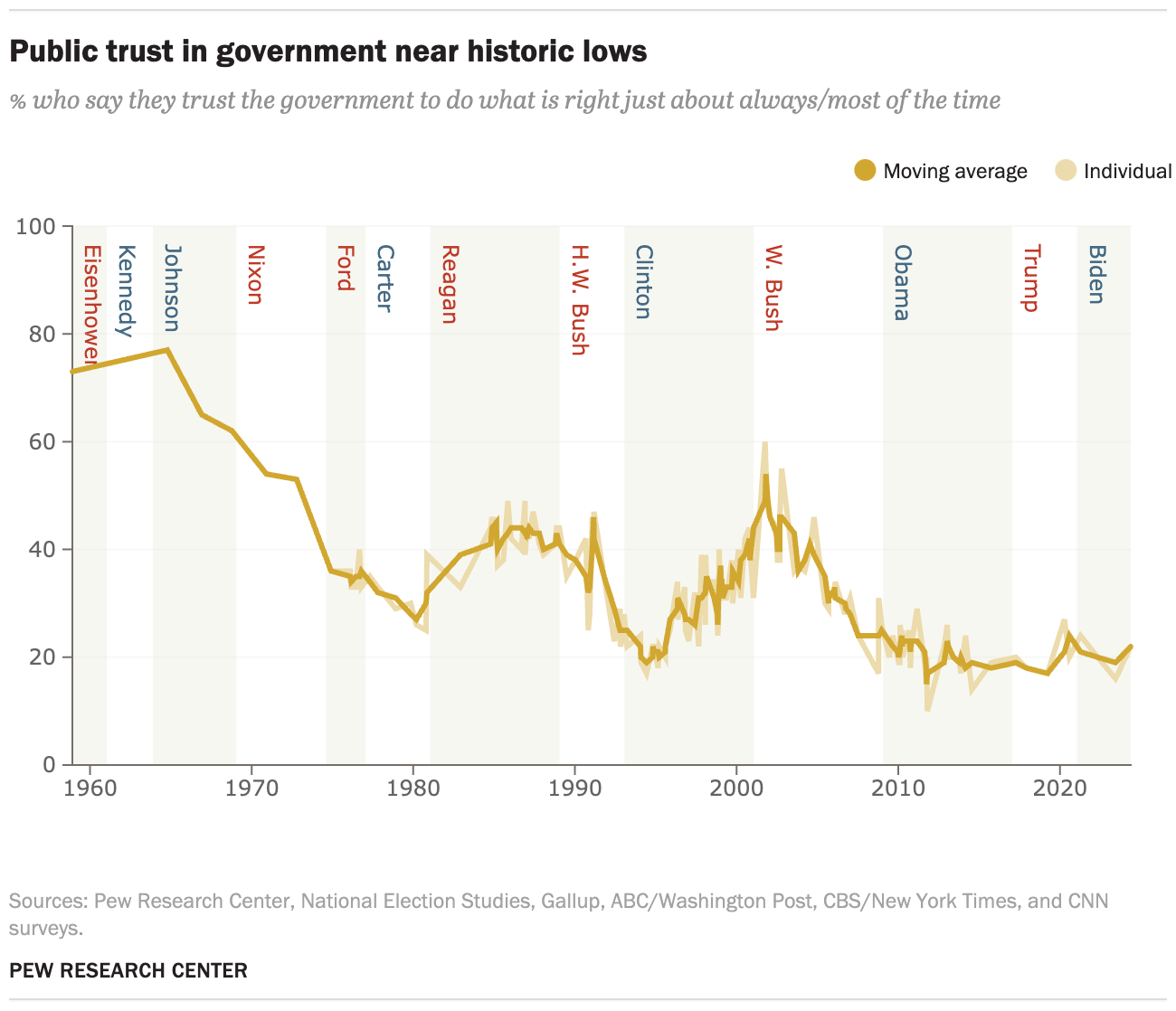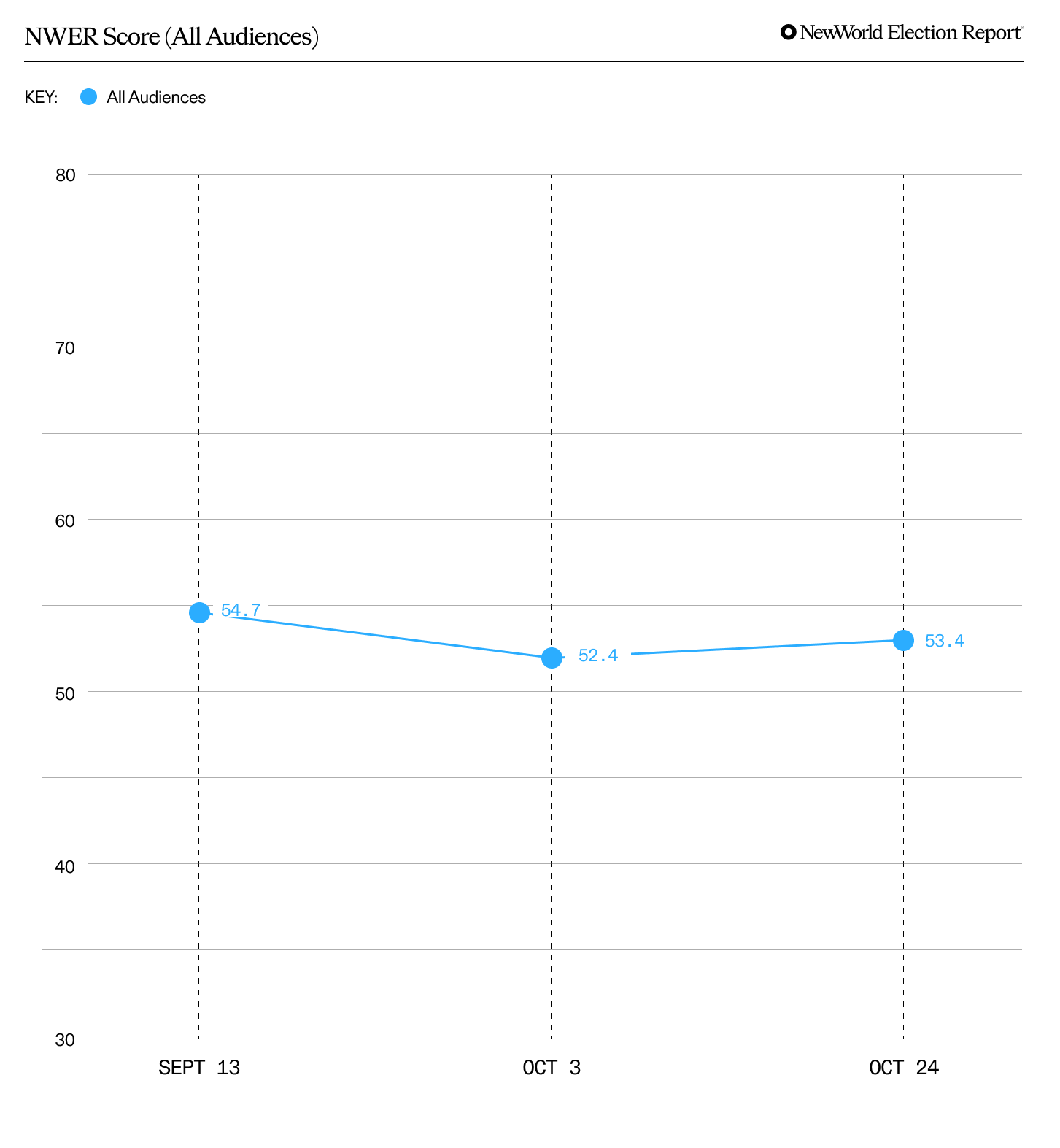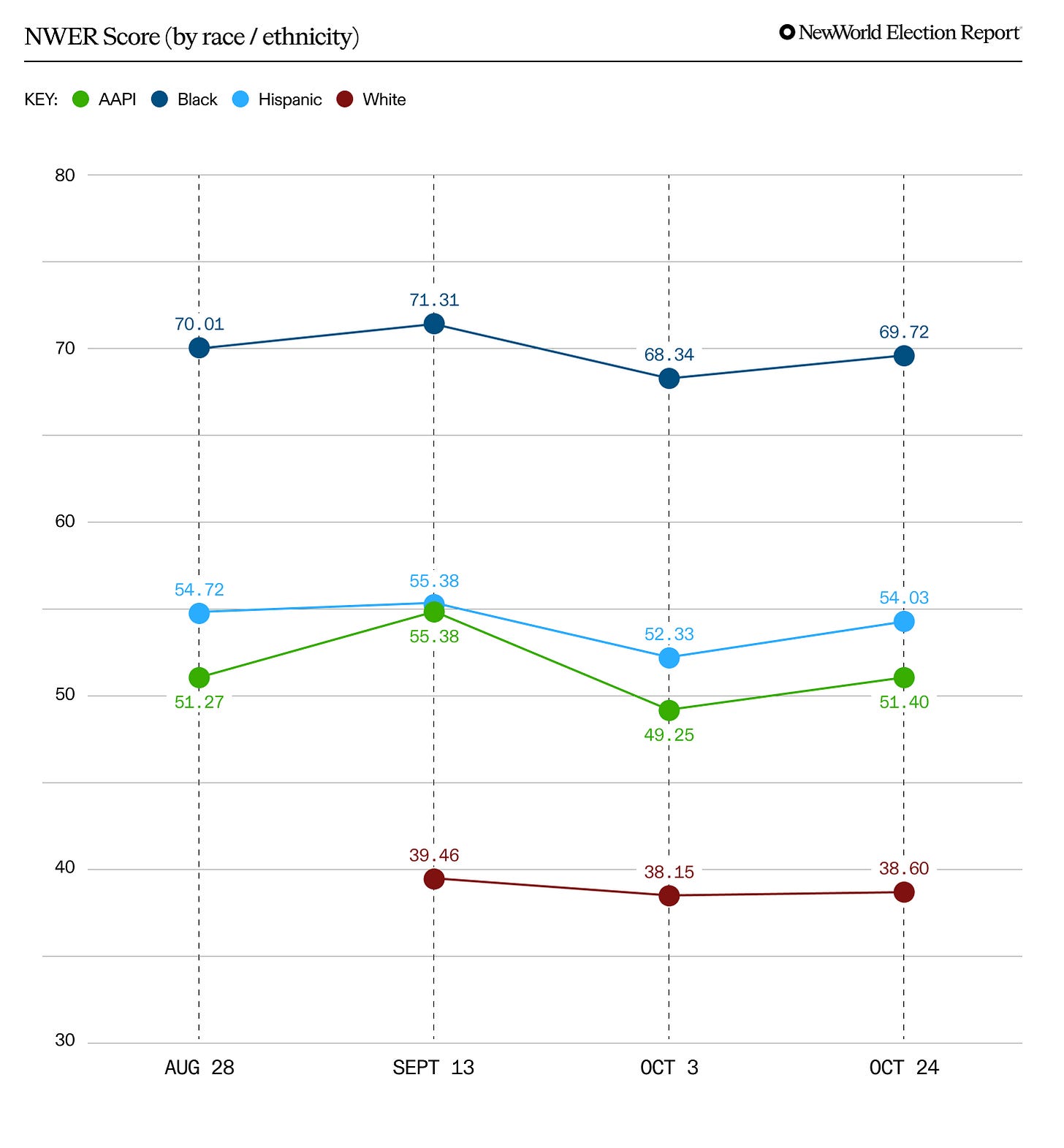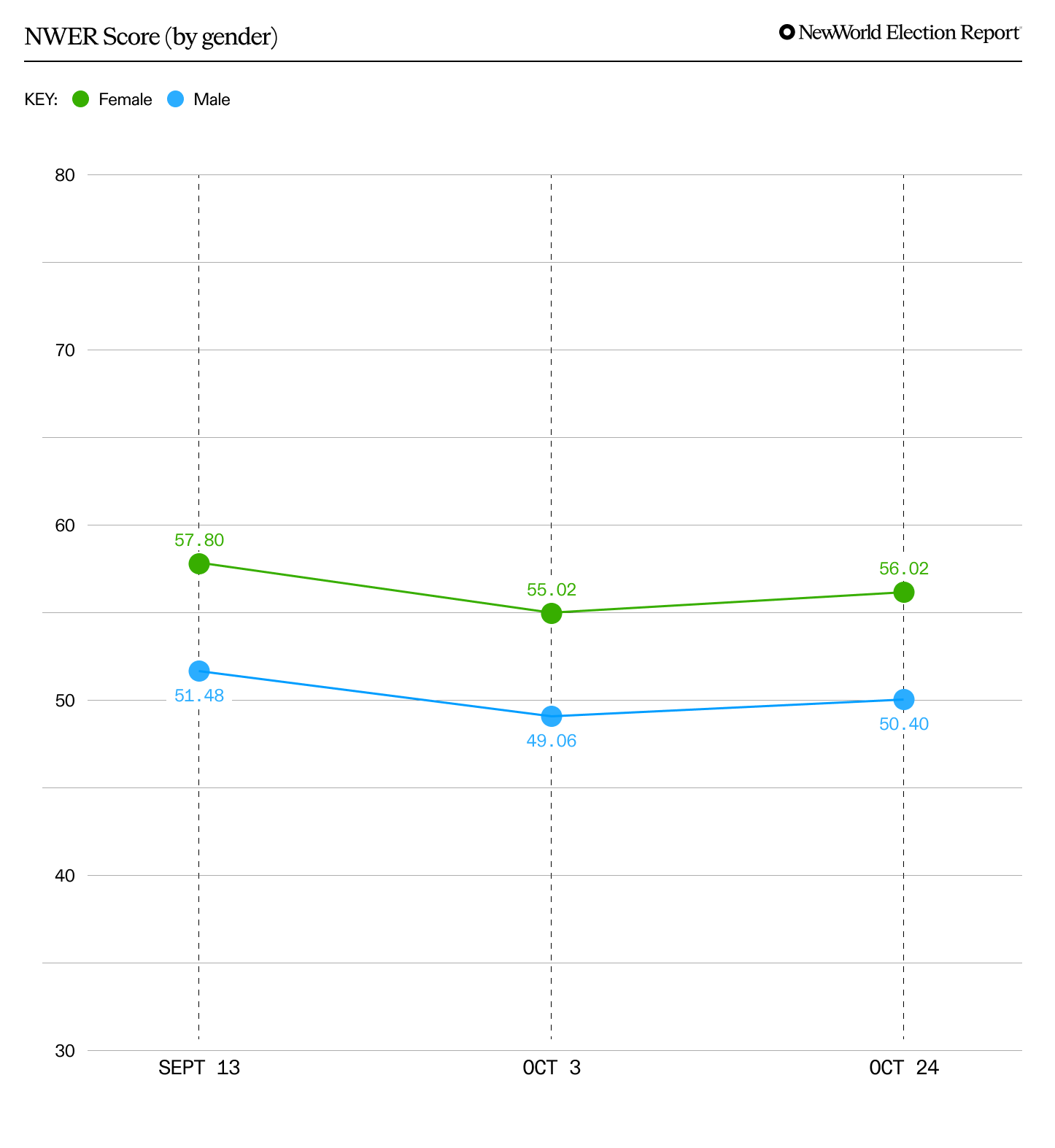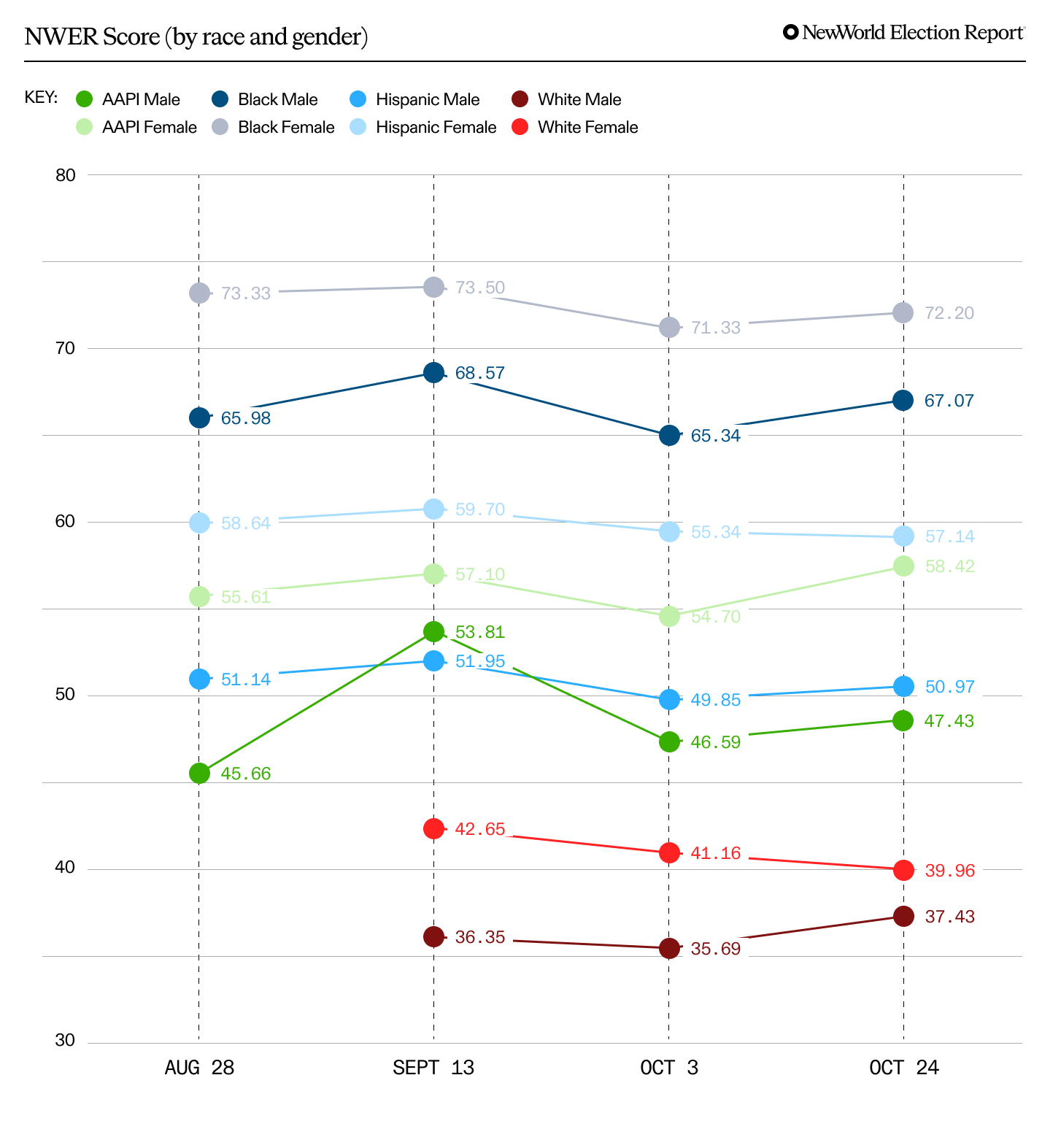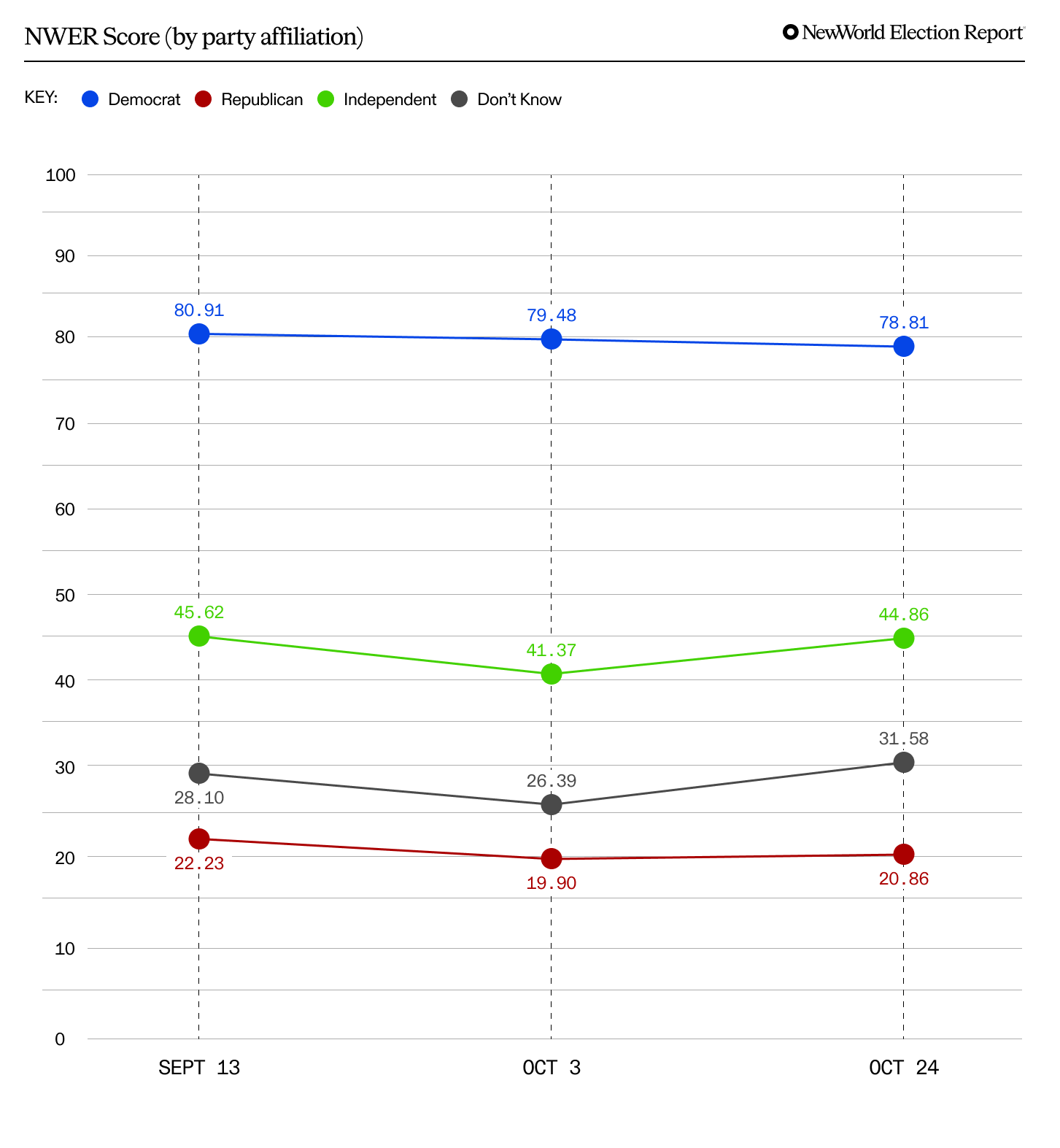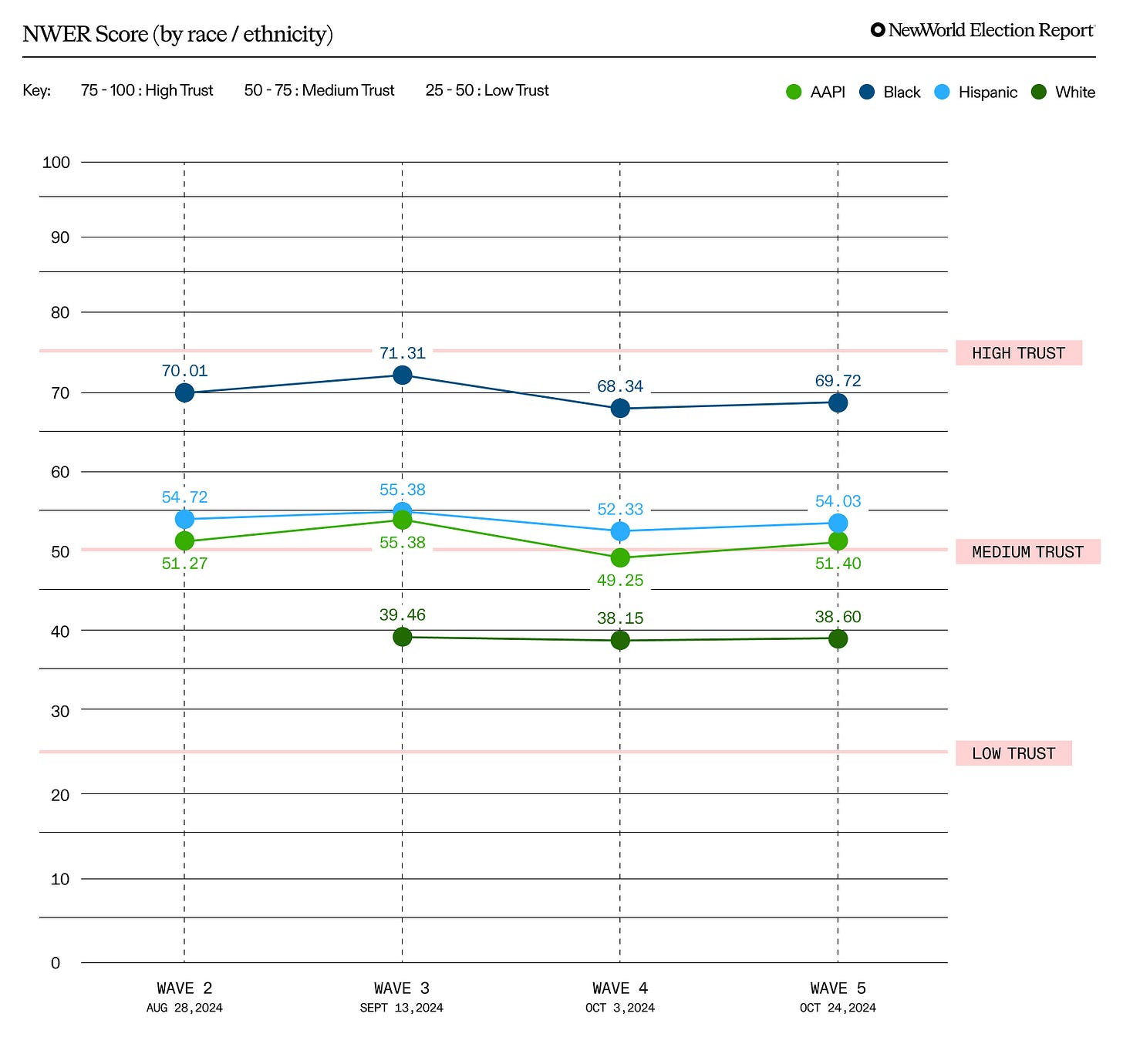Three days out and there’s little new to say about a close race, so we decided to look back across these three months to tackle a deeper question: Why is this close? How did our politics get here?
Making Sense of the Last 13 Weeks
The Election Report has been tracking the attitudes of voters with less than a college degree, with an emphasis on Black, Latinx, and AAPI voters, since VP Kamala Harris announced her campaign. We’ve shared highlights from the data as it landed, but now we can look back across the months to see what changed — and what didn’t.
I’ve been the first one this cycle to tell people to stop reading the polls because, for the most part, they are simply not helpful for your strategy or your sanity. Holding ourselves to that same standard, when we looked at movement across the many questions we asked, we just weren’t sure that any of it mattered. We started thinking about what we really wanted to learn from the data and were drawn to one particular factor that has shaped how we should understand all the research this year: trust.
This is Pew’s look at trust in government across the last 7 decades.
Vietnam, Watergate, Iraq, Obama, Trump, Roe v. Wade won and lost… with all of that history we find the nation near historic lows for its citizens’ trust in government.That’s less than a quarter of Americans who say that they trust the government in Washington to do what is right “just about always” or “most of the time”. Just last weekend, New York Times research found that less than half of Americans believe that democracy “does a good job of representing the people”.
If trust in politics and government is collapsing, where does that leave a candidate like Kamala Harris running a political campaign to lead the government?
Oda Mae Brown may have summed it up best.
Certainly there’s no way voters could avoid the candidates in an election where an unbelievable $14.7 billion dollars1 has been spent. But has all that money actually moved the needle when it comes to convincing voters to mobilize around a candidate in a system many, if not most, are losing trust in?
Introducing the NewWorld Trust Score
We went back to our tracking poll and pulled the four questions that spoke most to the different facets that shape trust in politics.
The score combines our respondents’ trust in Harris to:
Unify the country: “strongly agree” and “somewhat agree” responses to the statement “If elected President, Kamala Harris would help heal the division among the American people.”
Improve their life: “somewhat better” and “much better” responses to the statement “How will your life change if Kamala Harris is elected President?”
Do the job well: “very” and “somewhat” responses to the question “In your view, how competent is Kamala Harris?”
Get shit done:“strongly agree” and “somewhat agree” responses to the statement “If elected, Kamala Harris will be effective at ending the dysfunction in Congress.”
Taken together, here is the NewWorld Trust Score for VP Kamala Harris across all voters with less than a college degree.
Despite assassination attempts, billions spent on ads, debates, and many, many memes, our level of trust for Harris has barely moved2. A lot of action; little traction.
When you break it out by race and gender, you see how we get to that national picture. While individual groups started from different baselines of trust, almost everyone has moved less than a point in either direction despite relentless attempts to shape our perceptions3.
Obviously registered Democrats are more likely to trust VP Harris but the stability of these New World Trust Scores through the campaign holds for people of any party affiliation.
We need to rethink trust to win back the working class
It’s hard to imagine the Harris campaign doing much more than it has in the last three months. But how has Democratic Party built trust with voters, particularly the multiracial base of the party with less than a college degree, for the last three years? Or for the last 30 years?
The logic of our election campaigns is built around understanding who will vote and assembling enough of those votes to tip the scale in our direction. With the introduction of big data, it’s increasingly a race to spend as much money as efficiently as possible between August and November to convince voters to get behind your candidate, and then mobilize them to actually vote.
In a nation of near record low trust in government and with a media environment convulsed by disinformation, this strategy is becoming a very dangerous game. These last months show us how enough money flowing on both sides allows lies and disinformation to proliferate, sowing seeds of confusion around anything and everything: a policy, an assassination attempt, a voting machine, a person’s race, even who “controls” a hurricane. This is how a highly qualified Black woman ends up in a dead heat with the guy threatening to put his opponents in front of a firing squad.
If we know how we got here, we can find a way back.
There is no cheap solution for rebuilding trust, but we can start by understanding that job differently. The NewWorld Trust Score might begin to help us do that.
Between now and the next Election Day we can build targeted strategies aimed at moving voters away from extremism tailored to their different levels of trust:
For high trust voters like Black Democrats, we can validate that trust by narrating constantly what the party is doing to deliver on that loyalty. We have to sustain their trust.
For moderate trust voters, we have to zoom in on the issues where trust is breaking down and persuade aggressively that the party's priorities are meeting those voters where they are at and convincing that we are serious about delivering. We have to grow their trust.
For low trust voters we need to decide which ones are aligned to our values and aggressively inoculate against the worst misinformation and take nothing for granted by reintroducing the party and candidates. We have to win their trust.
If we don’t want to be here again, we need to spend our billions between, not during, elections
Ultimately if we don’t want to be here again, we need to spend our billions across the next two and four years to get more people above the NewWorld Trust Score hight trust threshold before we reach the middle of the election year. Luckily organizations like the Texas Organizing Project, New Virginia Majority, and a whole ecosystem of organizing, labor, climate, cultural, and reproductive freedom organizations exist. We could 10x their work to build trust with voters year-round and still need more.
In these final few hours, trust can still be built.
Voters of color will decide this election – as they have for every election since the year Kamala was born. We are clear that building trust with our voter is a long term project that must continue into 2028 and beyond, regardless of the outcome on Tuesday.
Each day until Election Day we will be sharing what’s happening right now across the country to build trust and how you can amplify it.
Stay tuned. Stay on.
https://www.bloomberg.com/graphics/2024-us-election-pac-spending-donations-fec/
No survey weights were applied for this plot's estimates.
We did not survey white non-college voters in our Aug 28 polling.




